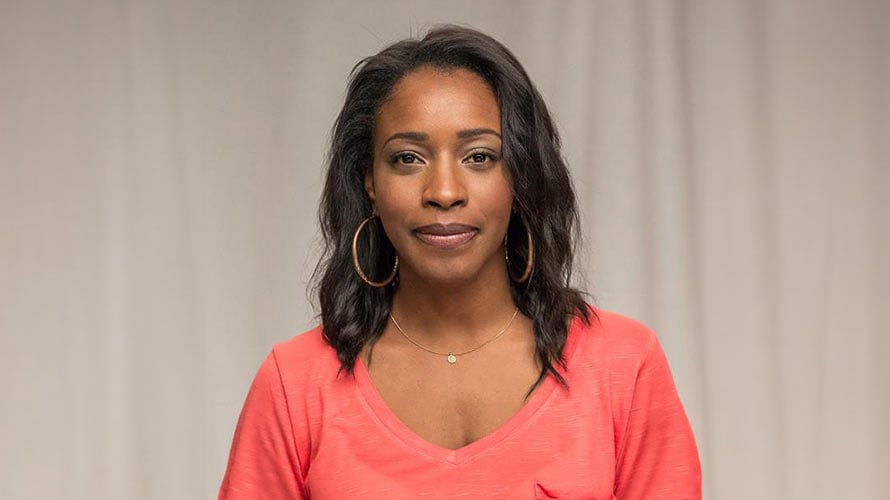Symptoms of melanoma and a gut feeling led to diagnosis
At 23, Jacqueline was living in New York when she noticed a lump under her skin. It was diagnosed as stage 3 melanoma. After having a lymph node removed at a local hospital, she assumed her brush with cancer was over. But a second lump appeared a few years later. Doctors told her it was nothing to worry about, but her instincts kept telling her it was something more. While at Syracuse University pursuing her Ph.D., Jacqueline decided one day to go to the health center. The doctor biopsied another lymph node, revealing stage 3 melanoma. Again.
After contacting several doctors who specialized in melanoma, she spoke to a surgeon in New York City who had done his fellowship at Moffitt Cancer Center. Jacqueline recalls his advice. “He said, ‘If you were my daughter, I would take you to Moffitt. So I suggest you call there.’” But before committing, she visited a cancer center in Orlando. She was told “it would be a miracle if I lived another five years.” And that any plans to finish her Ph.D. would be unrealistic. Jacqueline didn’t accept the news. “I wanted to do stuff with my life before cancer,” she says. “It didn’t change me in that regard.”
Cancer-free after melanoma treatment at Moffitt
Finally at Moffitt, her doctor answered all her questions and offered exactly what she needed most: optimism. “One of the things that made it easy for me to move forward was that everyone pushed me to do better…they were just so encouraging, so comforting and they just gave me a sense of hope.”
Now 37, Jacqueline is cancer-free. And a strong believer in following your instincts and getting a second opinion. “Because it’s your body and it’s your life…you have to be an advocate for yourself,” she asserts.
Jacqueline says she has her good days and difficult ones, but pushes through to achieve her ambitions. While in grad school in Syracuse doing her dissertation on melanoma survivorship, she also worked for the U.S. Senate in areas including public health policy. “I remember my dad always said everyone has something that we have to go through in life,” she recalls. “And so you just go through it and you keep moving forward. That’s really just how I look at it.”

